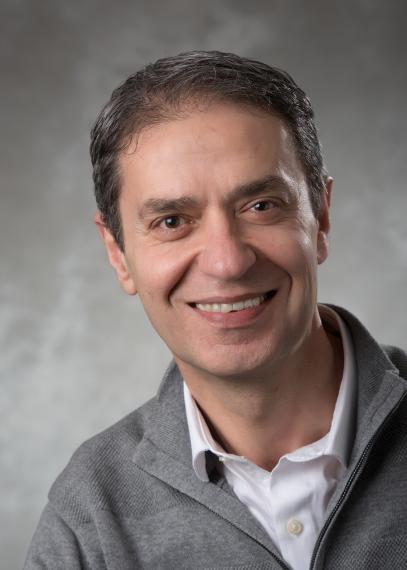Bassim E. Abbassi

Instrumentation
Dr. Abbassi’s laboratory is equipped with the state-of-art apparatuses and devices that are necessary to conduct experimental work in the field of wastewater treatment and solid waste processing. Instruments available but not limited to are Zetasizer, Atomic Absorption (graphite furnace), PeCOD, Total Organic Carbon (TOC), Elemental Analyzer, and HACH Spectrophotometer for rapid analysis.
Capabilities
The available equipment are utilized intensively in Abbassi’s research work tackling mainly decentralized wastewater treatment, electrocoagulation and electroflotation, and electrochemical advanced oxidation of emerging contaminants.
Education and Employment Background
Dr. Bassim E. Abbassi received his PhD from the University of Bremen, Germany in 1997. Between 1998 and 2014, Abbassi joined Al-Balqa’ Applied University in Al-Salt, Jordan where he held several positions including Head of the Department of Water Resources and Environmental Management and Dean of Scientific Research. In 2014, Abbassi worked as a Visiting Professor in the School of Engineering at the University of Guelph. He joined the University as a full-time faculty member in 2015, and is now a Professor in the School of Engineering and the Director of the Ontario Rural Wastewater Center.
Research Themes
Abbassi’s research is focused on decentralized wastewater treatment, solid and hazardous waste management, pollution control, and environmental management system including life cycle assessment. His work addresses many diverse environmental needs. Recent research topics include:
- Wastewater treatment. Abbassi has explored the application of constructed wetland in wastewater treatment and the operating parameters of the wetland system need to be optimized for nutrient removal (i.e nitrogen). He has also conducted a bench test of steel suction lysimeters for onsite wastewater applications. A bench-top columns study was designed to investigate the different operating parameters on the adsorption of heavy metal, pharmaceuticals and xenobiotic material. He has also examined brewery wastewater and how to separate solids from the wastewater streams. Finally, Abbassi has explored an emerging technique in the wastewater industry: the use of electrocoagulation and electrokintecs principles to effectively separate solid from raw domestic wastewater (primary treatment) and dewater secondary sludge.
- Life cycle assessment (LCA). LCA is becoming one of the most powerful tools to evaluate and quantify the environmental impact. Abbassi has conducted an LCA study for three municipal wastewater treatment systems; on-site wastewater (septic systems), decentralized, centralized treatment system to investigation the best sanitation scenario. He has also conducted several LCA studies using SimaPro software to quantify the impacts of renewable energy systems (wind and solar), wastewater technologies (onsite, MBR, and adsorption), and low impact development (LID) technologies. Abbassi also applied LCA to wash-water recycling in the fresh fruit and vegetable sector.
- Solid waste management in the City of Guelph. This research is conducted in close cooperation with the Waste Resource Innovation Centre in Guelph. Abbassi and his group have explored the carbon footprint of the municipal solid waste management in Guelph City and the application of LandGEM model to predict the generation of methane from solid waste landfills.
Highlights
- Ontario Ministry of Agriculture, Food and Rural Affairs (OMAFRA) grant, 2015, 2016, 2019, 2020
- Ontario Rural Wastewater Centre grant, 2016-2021
- Ontario Sheep Farmers Association grant, 2021
- NSERC RTI grant, Zetapotential analyzer, 2017
- Southern Ontario Water Consortium, AWT program grant, 2017,2018
- Interim Director, Southern Ontario Water Consortium, 2019
- Editorial Board Member, Jordanian Journal of Civil Engineering, 2015-2017
- Professional Development Committee Member, Ontario Onsite Wastewater Association, 2016-2018